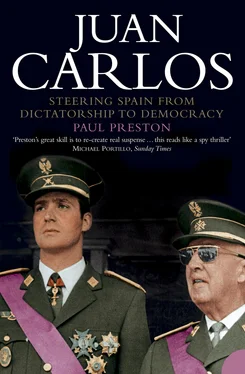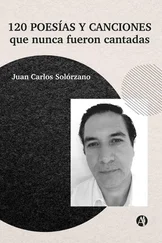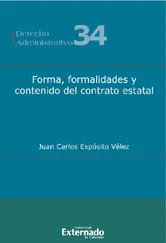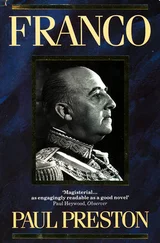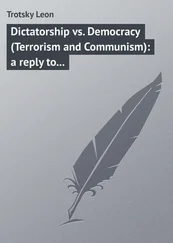Don Juan’s reply was not without its ironic undertones. In response to Franco’s insinuation that he was out of touch with the situation in Spain, he pointed out that in 13 years of exile, he had learned more than he might living in a palace, where, he said in a pointed reference to life at El Pardo, the atmosphere of adulation so often clouded the vision of the powerful. Regarding their conflicting visions of the international situation, Don Juan pointed out that Franco was one of the very few people in 1943 to believe in the long-term stability of the National-Syndicalist State. He suggested that Franco and his regime would not survive the end of the War. To avoid a stark choice between Francoist totalitarianism and a return to the Republic, Don Juan appealed to the Caudillo’s patriotism to restore the monarchy. Once more, he repeated his argument – an anathema to Franco – that the monarchy was a regime for all Spaniards and how, for that reason, he had always refused Franco’s invitations to express solidarity with the Falange. 53 Don Juan’s crystalline letter had all the logic, common sense and patriotism that was lacking in Franco’s convoluted effort. However, the Caudillo was the sitting tenant and he was determined to brazen out the situation, confident that the Allies had too many other things to worry about. His optimism was in part fed by the conviction that the Americans regarded him as a better bet for anti-Communist stability in Spain than either the Republican opposition or Don Juan.
Despite his virtually limitless confidence in his own superiority over the House of Borbón, and his belief in the legitimacy of his power by dint of the right of conquest, Franco did feel seriously threatened by Don Juan’s so-called Manifesto of Lausanne. This momentous document was issued just as the Caudillo’s faith in Axis victory was finally beginning to ebb. With Pedro Sainz Rodríguez and José María Gil Robles in Portugal, and communication with Switzerland extremely difficult, the Manifesto was drawn up largely by Don Juan himself with the assistance of Eugenio Vegas Latapié. It was a denunciation of the Fascist origins and the totalitarian nature of the regime. Broadcast by the BBC on 19 March 1945, it called upon Franco to withdraw and make way for a moderate, democratic, constitutional monarchy. It infuriated Franco and set in stone his prior determination that Don Juan would never be King of Spain. Only the tiniest handful of monarchists responded to the Manifesto’s call for them to resign their posts in the regime. 54 For many monarchists, Francoist stability had come to be worth much more than the uncertainties of a restoration. Fearful that Don Juan’s confidence in Allied support threatened the overthrow of the dictatorship and the possible return of the exiled left, they were not inclined to rally actively to his cause.
Franco’s éminence grise , the naval captain Luis Carrero Blanco, short, stocky, his face overshadowed by his thick bushy eyebrows, advised him how best to exploit this sentiment. The dourly loyal Carrero Blanco recommended that he refrain from lashing out immediately against Don Juan. Instead, he counselled a process whereby the Pretender would be weaned away from his more radical advisers and coaxed into the Movimiento fold. His memorandum to Franco was astonishingly prophetic and it did not bode well for Don Juan’s future or for Juan Carlos’s happiness: ‘It is crucial to get Don Juan on the road to radical change so that, in some years, he might be able to reign, otherwise he must resign himself to his son coming to the throne. Moreover, it is necessary to start thinking about preparing the child-prince for Kingship. He is now six or seven and seems to have good health and physical constitution; if properly brought up, principally in terms of Christian morality and patriotic sentiments, he could be a good King with the help of God, but only if this problem is faced up to now. For the moment, it would be prudent, 1) given that new clashes are not in our interests and nothing good can come of them, not to react violently against Don Juan nor give up on him altogether even though we believe that he cannot now be King; 2) to send some trustworthy monarchists to Lausanne; 3 ) to put the greatest care into selecting a perfectly prepared tutor for the young Prince; 4) to face up determinedly to the problem of the fundamental laws that we need, and define the Spanish regime. With regard to choosing our definitive form of government, since nations can be only republics or monarchies, and in Spain the republic is out of the question since it is a symbol of disaster, the form of government has to be a monarchy.’ 55
Without the military support of the Allies or the prior agreement of the military high command and the ecclesiastical hierarchy, Don Juan was naïvely depending on Franco withdrawing in a spirit of decency and good sense. The Caudillo’s determination never to do so was revealed in his comment to General Alfredo Kindelán: ‘As long as I live, I will never be a queen mother.’ 56 Despite Carrero’s counsel of moderation, Franco was deeply stung by the Lausanne Manifesto. He began to take practical steps to give substance to his claims to be the best hope for the monarchy. Two prominent regime Catholics, Alberto Martín Artajo, President of Catholic Action, and Joaquín Ruiz Giménez were despatched to tell Don Juan that the Church, the Army and the bulk of the monarchist camp remained loyal to Franco. They had no need to tell him that the Falange was deeply opposed to a restoration. 57 To neutralize any resurgence of monarchist sentiment in the high command, Franco summoned his senior generals to a meeting which remained in session for three days, from 20 to 22 March. He brazenly informed his generals that Spain was so orderly and contented that other countries including the United States were jealous and planned to adopt his Falangist system. He tried to frighten his generals off any monarchist conspiracy by brandishing the danger of Communism for which he blamed Britain, Don Juan’s best chance of international support. It did not bode well for the Borbón family that, Kindelán aside, the generals seemed happy to swallow the Caudillo’s absurd claims. 58 The controlled press praised Franco for having saved the Spanish people from ‘martyrdom and persecution’, the fate, it was implied, to which the failures of the monarchy had exposed them. 59 Even more space than usual was devoted to the annual Civil War victory parade. Slavish tribute was paid to Franco’s victory over the ‘thieves’, ‘assassins’ and Communists of the Second Republic – the barely veiled message being that these same criminals – and with them, Don Juan – were even now plotting their return with the help of the Allies. 60
All this time, the young Juan Carlos had been brought up by nannies and tutors, seeing more of his mother than his father, who was absorbed by the struggle to restore the throne. Now he was seven and oblivious, as were his parents, to the momentous implications of Carrero Blanco’s report on the Lausanne Manifesto. Thirty years before the death of Franco, Carrero Blanco was proposing that his master’s eventual successor be Juan Carlos. For that to be a feasible option, it would be crucial, from the dictator’s point of view, that Juan Carlos received the ‘right’ kind of political formation, or indoctrination. Don Juan’s acquiescence was crucial, yet Franco made little effort to avoid unduly antagonizing him. When the chubby Martín Artajo returned from his mission to Lausanne, Franco grilled him on 1 May for two and a half hours about his conversations with Don Juan. Still furious about the Manifesto, Franco snapped, ‘Don Juan is just a Pretender. I’m the one who makes the decision.’ The Caudillo made it patently clear that he did not believe in one of the basic tenets of monarchism – the continuity of the dynastic line. In coarse language that must have shocked the prim Martín Artajo, he dismissed what he considered to be the decadent constitutional monarchy by reference to the notorious immorality of the nineteenth-century Queen Isabel II. He said, ‘the last man to sleep with Doña Isabel cannot be the father of the King and what comes out of the belly of the Queen must be examined to see if it is suitable.’ Clearly, Franco did not regard Don Juan de Borbón as fit to be King. He made critical comments about his personal life and dismissed Martín Artajo’s efforts to defend him – ‘There’s nothing to be done … He has neither will nor character.’ Franco would produce a law which turned Spain into a kingdom but that would not necessarily mean bringing back the Borbón family. A monarchical restoration would take place, declared Franco, ‘only when the Caudillo decided and the Pretender had sworn an oath to uphold the fundamental laws of the regime’. 61
Читать дальше
